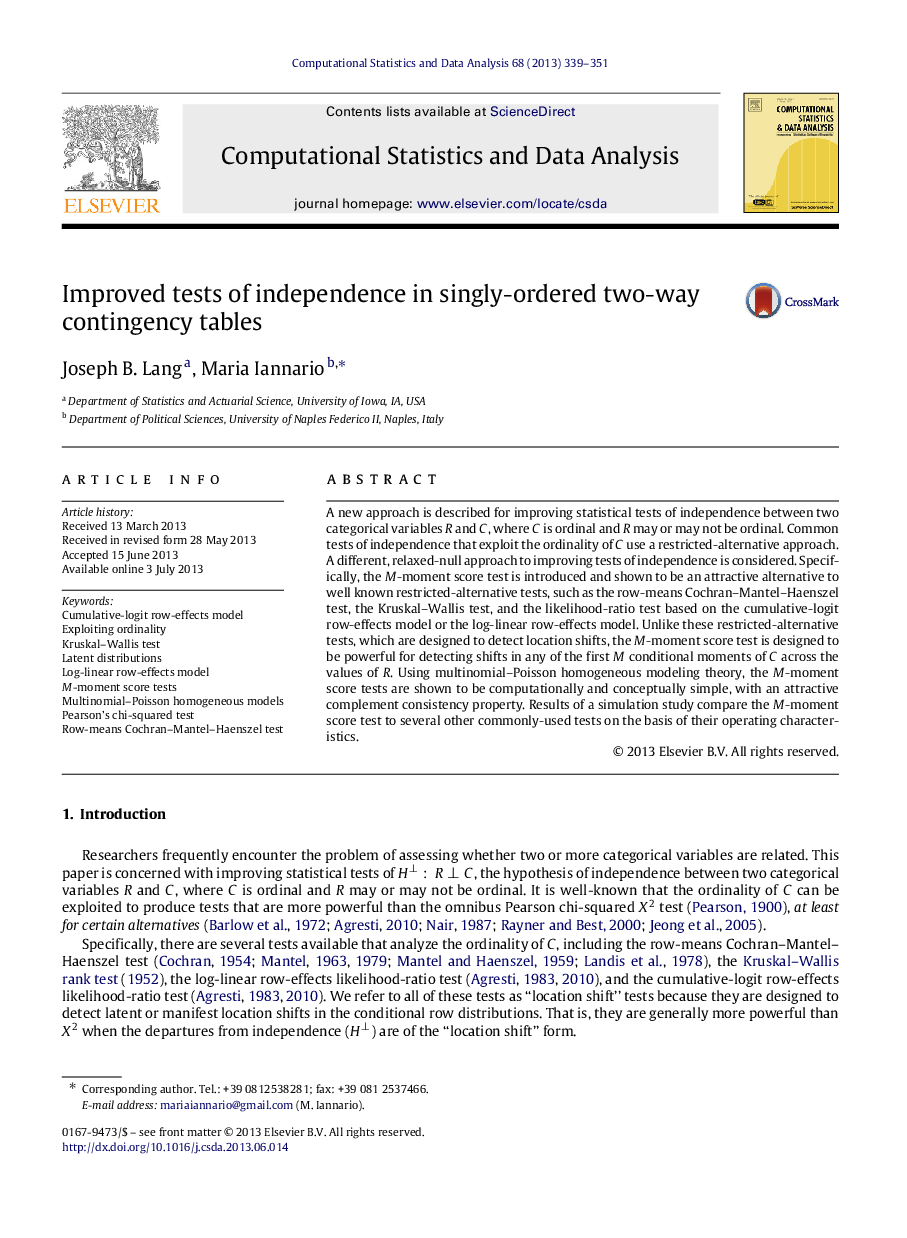| Article ID | Journal | Published Year | Pages | File Type |
|---|---|---|---|---|
| 6870781 | Computational Statistics & Data Analysis | 2013 | 13 Pages |
Abstract
A new approach is described for improving statistical tests of independence between two categorical variables R and C, where C is ordinal and R may or may not be ordinal. Common tests of independence that exploit the ordinality of C use a restricted-alternative approach. A different, relaxed-null approach to improving tests of independence is considered. Specifically, the M-moment score test is introduced and shown to be an attractive alternative to well known restricted-alternative tests, such as the row-means Cochran-Mantel-Haenszel test, the Kruskal-Wallis test, and the likelihood-ratio test based on the cumulative-logit row-effects model or the log-linear row-effects model. Unlike these restricted-alternative tests, which are designed to detect location shifts, the M-moment score test is designed to be powerful for detecting shifts in any of the first M conditional moments of C across the values of R. Using multinomial-Poisson homogeneous modeling theory, the M-moment score tests are shown to be computationally and conceptually simple, with an attractive complement consistency property. Results of a simulation study compare the M-moment score test to several other commonly-used tests on the basis of their operating characteristics.
Keywords
Related Topics
Physical Sciences and Engineering
Computer Science
Computational Theory and Mathematics
Authors
Joseph B. Lang, Maria Iannario,
